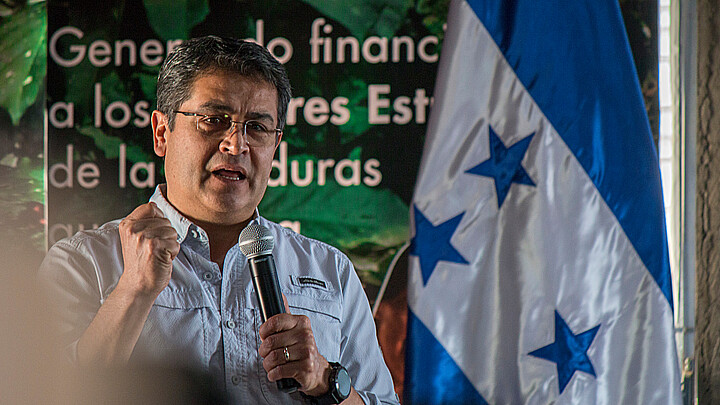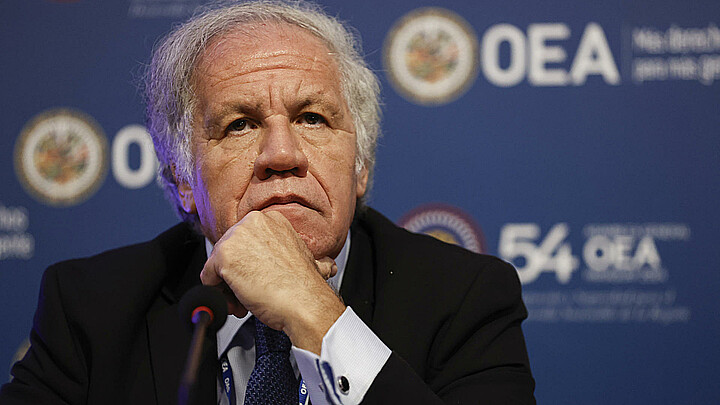Politics
Chinese Communist Party set on expanding 'empire' into Latin America
The CCP provided a more in-depth preview of their Latin American ambitions days before Managua cut ties with Taipei.
January 3, 2022 1:38pm
Updated: January 3, 2022 6:53pm
The Chinese Communist Party (CCP) has unveiled a new “action plan for cooperation” with Latin America, signaling a desire to influence the region and threaten U.S. interests in the Western Hemisphere, the Washington Examiner reported.
“The Chinese Communist Party and government are actively looking to strengthen their ties throughout the Western Hemisphere, in particular with anti-American elements,” Sen. Marco Rubio said in a statement. “Beijing is seeking to surpass the United States in every sector, and we must take this threat seriously.”
This "action plan" came out following a Dec. 3 summit with the Community of Latin American and Caribbean States (CELAC) and China. The first China-CELAC summit was launched by former Venezuelan dictator Hugo Chavez in 2011 in an attempt to rival the Organization of American States (OAS) and challenge U.S. influence in the region. The cooperative bloc now appears to have become a platform through which Chinese General Secretary Xi Jinping can gather a coalition of Latin America’s left-wing, authoritarian governments in order to advance Beijing’s interests.
“The Chinese don’t say, ‘We want to take over Latin America,’ but they clearly set out a multidimensional engagement strategy, which, if successful, would significantly expand their leverage and produce enormous intelligence concerns for the United States,” said Evan Ellis, a U.S. Army War College research professor and former member of the State Department policy planning staff.
But China’s ambitions in the region are becoming hard for Washington to deny.
Shortly after the Biden administration, the European Union and the OAS General Assembly rebuked Nicaraguan dictator Daniel Ortega for conducting elections that “were not free, fair or transparent and have no democratic legitimacy,” the left-wing leader closed the Taiwanese Embassy in Managua in order to advance relations with Beijing.
“The Ortega-Murillo regime has announced it has severed diplomatic relations and ended official contact with Taiwan, but the sham election on Nov. 7 did not provide it with any mandate to remove Nicaragua from the family of American democracies,” State Department spokesman Ned Price said in a Dec. 9 statement. “Without the mandate that comes with a free and fair election, Ortega's actions cannot reflect the will of the Nicaraguan people, who continue to struggle for democracy and the ability to exercise their human rights and fundamental freedoms.”
Sen. Rubio also blasted the Nicaraguan regime’s growing closeness with the CCP in a recent op-ed.
“The Ortega-Murillo regime sees the CCP as a better ideological ally than the U.S. because Ortega’s long list of crimes and human rights violations are of no concern to the genocidal regime in Beijing,” he wrote. “Ortega also wants continued Chinese funding for the construction of an Atlantic-to-Pacific canal through Nicaragua, which People’s Liberation Army warships can then use to access the Caribbean.”
But Nicaragua’s ambitions go further than just diplomatic relations.
Recently, Nicaraguan Foreign Minister Denis Moncada expressed interest in joining China’s Belt and Road Initiative – a CCP led infrastructure investment agreement that U.S. officials consider a predatory lending scheme devised to “buy an empire.”
“The region is ripe for investment, for engagement, with a partner of China's size in different sectors,” Heritage Foundation research assistant Mateo Haydar said. “And [China is] capitalizing on that in ways that I think we're failing to recognize and at a speed that I think we’re failing to respond to.”
The CCP provided a more in-depth preview of their Latin American ambitions days before Managua cut ties with Taipei.
The China-CELAC summit on Dec. 3 ultimately culminated in the adoption of a plan to tighten economic ties and to enhance “political and security cooperation” while deepening China’s involvement in high-tech spheres — from cyberspace and artificial intelligence to “space science, satellite data sharing, satellite applications, construction of ground infrastructure,” and even nuclear energy.
“There are absolutely ambitions for China to become the dominant influence in Latin America,” Haydar added. “The challenge is comprehensive, and there's absolutely a security and military interest there. ... That threat is growing, and it’s a different kind of threat than what we saw with the Soviet threat.”










